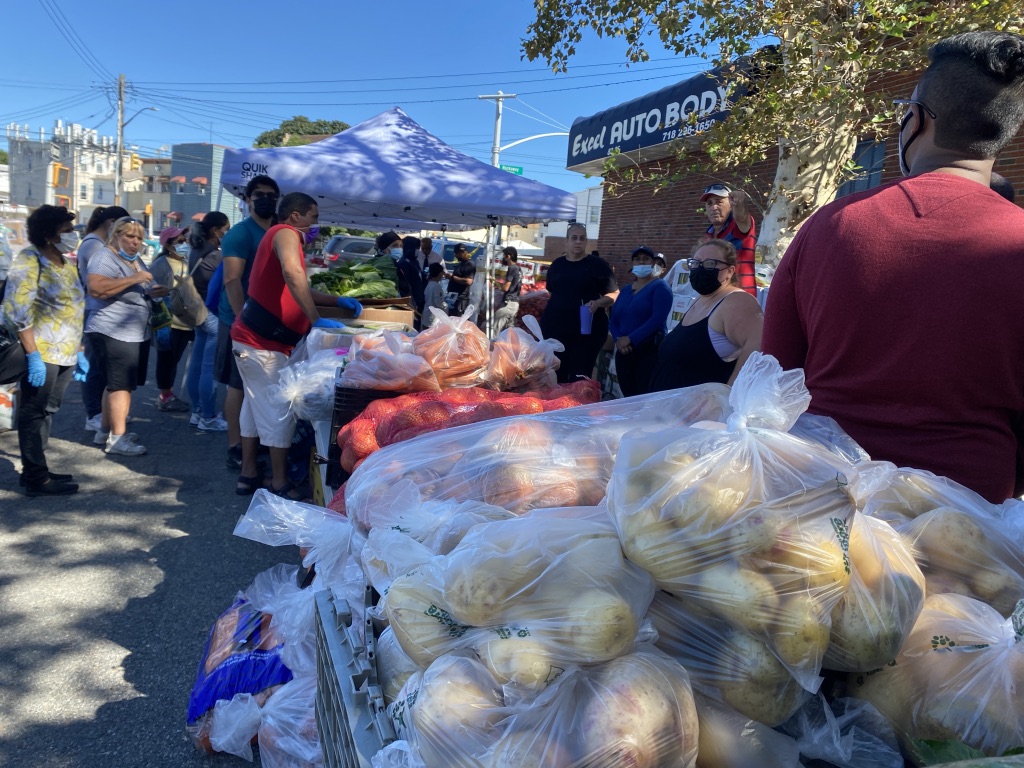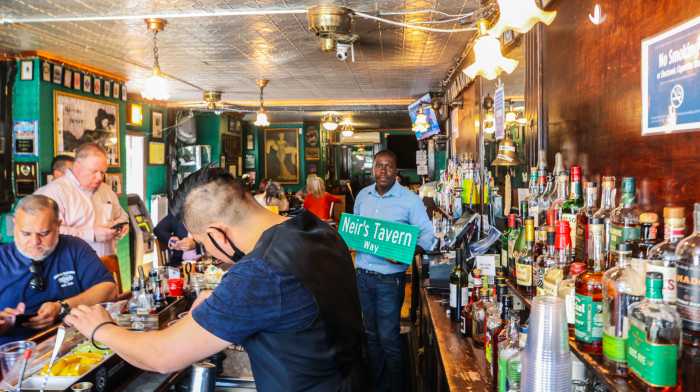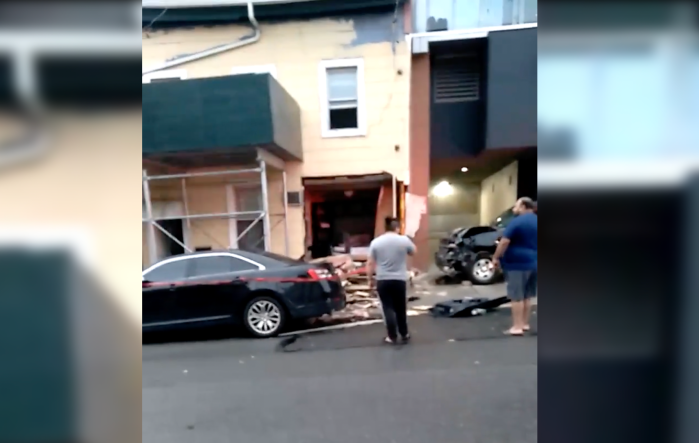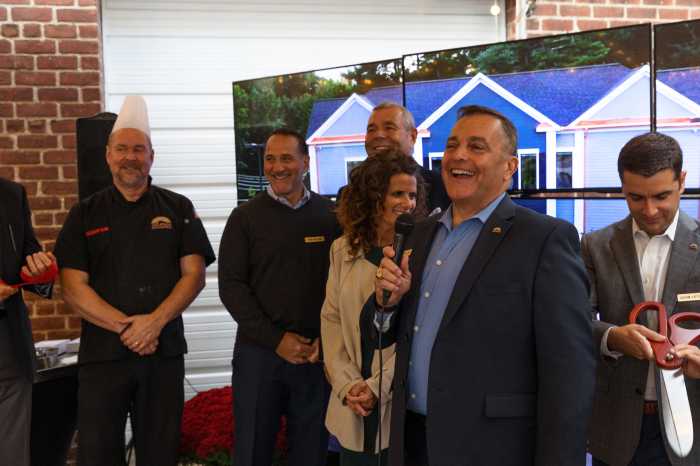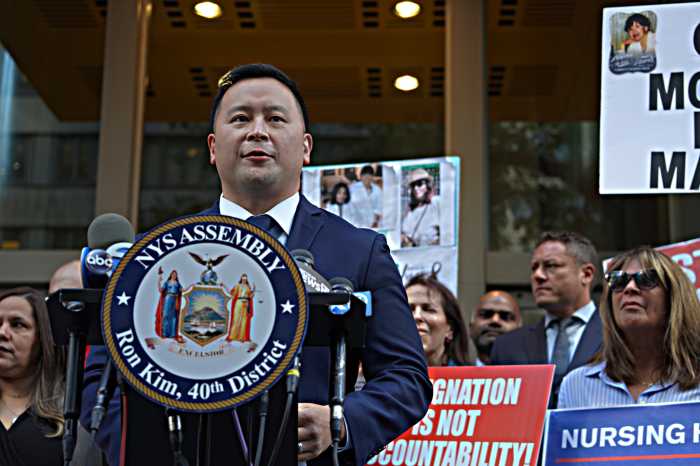For the last 17 months, one food pantry in Ozone Park has worked through rain and shine, and grown to become one of the largest all-volunteer non-funded food pantries in New York City.
Every Saturday without fail, volunteers have shown up for their community, enduring through poor weather conditions, working through holidays and pulling from their own resources just to serve the need in their community.
And the community’s response to the pantry has been remarkable. On Saturday, Sept. 25, as the noon start time approached, the line wrapped around the block as hundreds of people waited with their empty shopping carts, some having been there for hours.
The pantry was one of many operations across Queens created in response to the rampant COVID-19 pandemic-related food crisis.
What is now a large-scale operation started from a simple delivery service providing food for around 80 people.
As the need for food grew, organizations such as Ozone Park Block Association and Cityline Ozone Park Civilian Patrol (COPCP) partnered to address the problem.
When the pantry first started in March, they served around 100 families, but in the wake of layoffs and shutdowns, they began serving thousands of families.
During the height of the pandemic, the pantry served approximately 2,000 people. This month, they are averaging around 1,100 people, and passing out approximately 40,000 pounds of food per week.
For a while, there were no deliveries, and volunteers had to go out every day during the week to pick up food for Saturday, according to COPCP’s social media manager Daniel Hill.
“Now, we luckily get deliveries from food banks, but in the very beginning, we would drive to the other pantries and take their scraps and whatever they didn’t give out,” Hill said. “It was difficult at first because we were seeing other pantries in the area get favored by the mayor’s office, and they weren’t even using all of the food.”
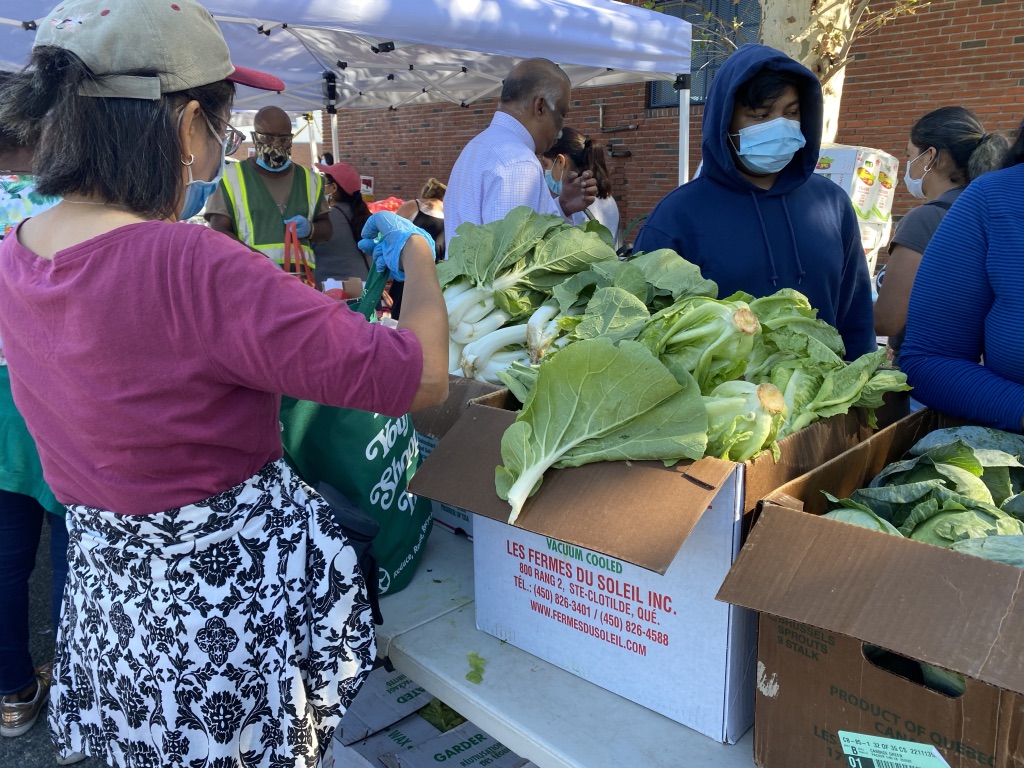
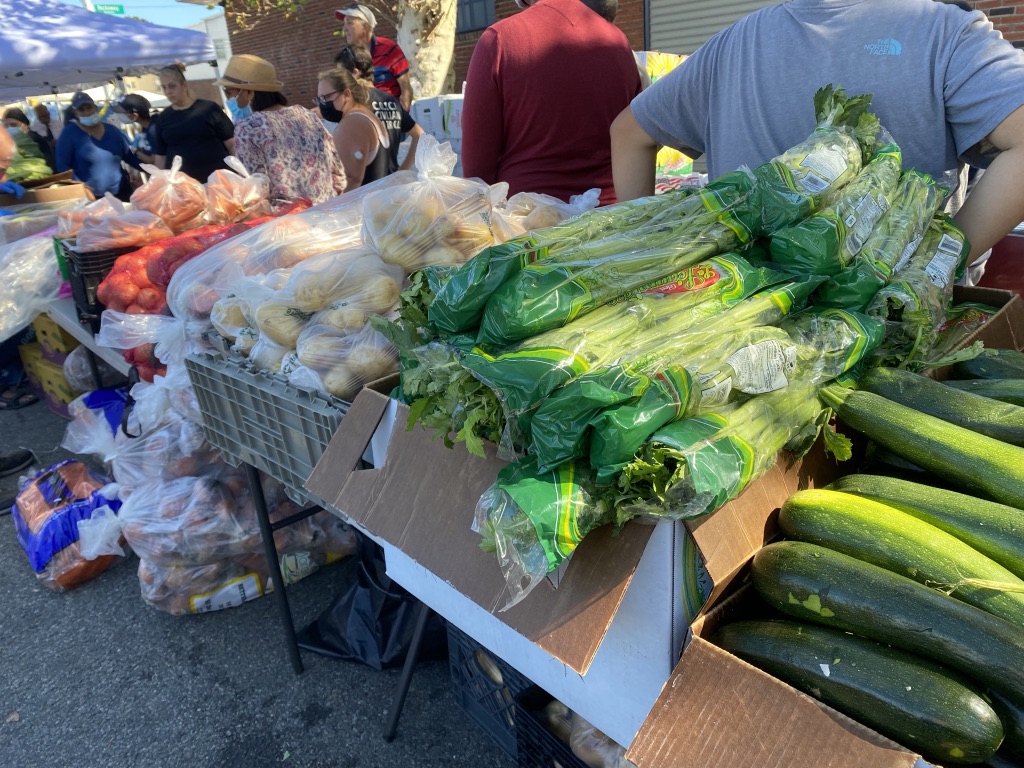
Before individuals reached the front of the line, names and addresses are recorded on a clipboard prior to being handed a ticket to get in. The ticket system is not only to regulate the line, but it also provides the number of people served for each Saturday. Those who are disabled are allowed to enter first and are given assistance with their food, and there is a separate line for seniors.
After starting the food pantry, Ozone Park Block Association President Sam Esposito noticed that the majority of volunteers were white or Hispanic, but didn’t represent the rest of the diverse groups of people they were serving.
“My goal was to bring people together, so we started putting it up on Facebook that we need volunteers, and the next thing you know, we have white, Black, Chinese, Guyanese, Bengali, Catholic, Muslim, Jewish, Hindu, gay and straight,” Esposito said. “It’s a family we’ve made, and everybody here has learned to get along with each other — something we never did in this neighborhood because it was always us versus them.”
While the food pantry was created in response to the pandemic, there was always a need for it in the community, but it was “simply ignored,” according to Iqbal Ali, president of Cityline Ozone Park Civilian Patrol. He felt that certain ethnic communities were being left out of the conversation, such as the Bangladeshi community.
“The diversity was there, but I felt like [certain communities] were always underserved,” Ali said. “Now we have seats in different organizations, we work with the NYPD, we work with elected officials and we work with all the boards. The Bangladeshis, the Spanish, the Asians, you name it — everybody is sitting there working together.”
Diversity and unity in spite of cultural and religious differences is a big part of the pantry’s success, and they want the food they provide to also reflect that.
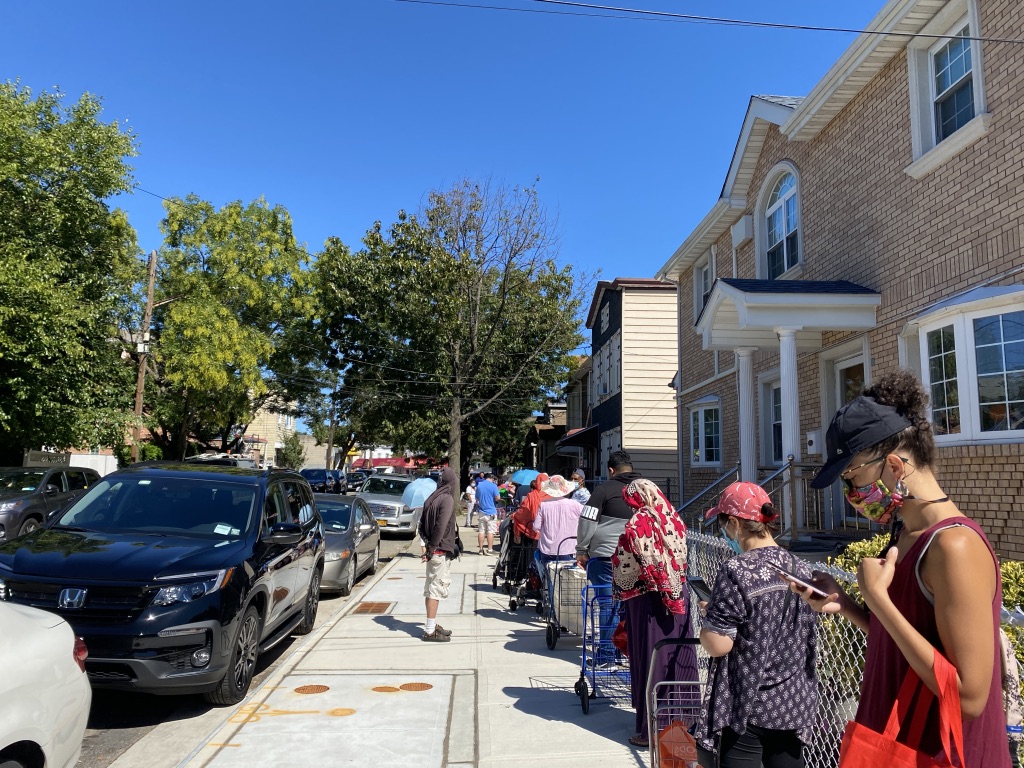
The volunteers lay out the food on the table and allow people to pick and choose what they want to take. Because there is such a diverse group of people on the line, not everyone can eat the same thing.
“We have to focus on what we have and what each community can eat,” said Mohammad Khan, the pantry’s executive director. “The Muslim community cannot have the meat because it’s not halal, which we only sometimes can get. We also serve a large Hindi community as well, and they can’t have beef or pork, so we have to cater to that.”
As a Muslim herself, Souad Bouhayat is one of the volunteers who takes care of the halal food selection. After standing in the line for food during the pandemic, she was touched by what the organizations were doing and decided to come back as a volunteer.
“We start creating a relationship with the people who come into the pantry, and they start cooking for us, sharing with us what they take from the pantry, and I’m very touched to know that we can make a difference in a certain way by giving a bag of food,” Bouhayat said.
As you walk the line, you might hear people speaking a dozen different languages, but there is always a translator for those who need it.
“We have a total of 15 languages [the volunteers] speak,” Kahn said. “We have English, Bengali, Spanish, French, Arabic, Guyanese, Italian, Hindi, Chinese, Haitian and many more. We make up a large language community here, so we always have someone to help.”
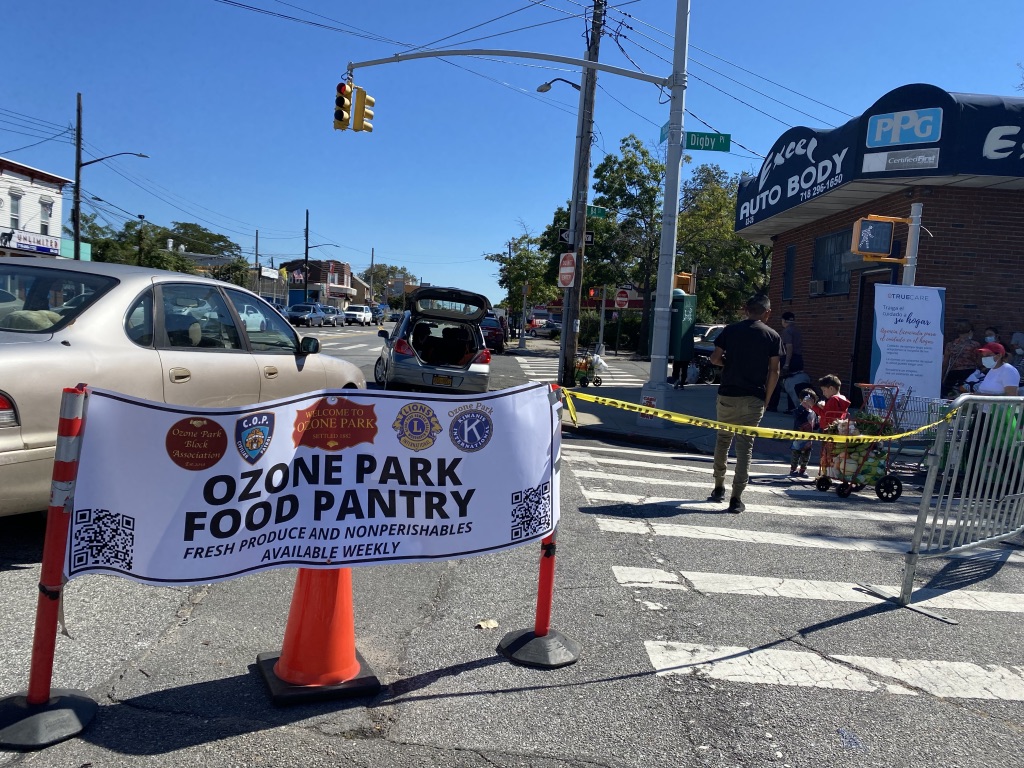
While the operation today has nine food pantries that supply them, along with GrowNYC and Food Bank, all other expenses — such as gas, transportation, supplies and compensation — are covered by Esposito and Ali.
Even though some organizations deliver to the pantry, volunteers still have to pick up food throughout the week from various outlets, and it’s no different on Saturday — volunteers are constantly leaving throughout the day to pick up food and restock their supplies to ensure there is enough for everyone. Organizers are spending anywhere from $1,200 to $1,500 from their own pockets on a weekly basis.
The manager of the pantry, Patricia Raghunandan, said it is difficult for organizers and volunteers to solely depend on other pantries and their own personal resources to get things done, but volunteers willingly sacrifice their time and resources for free.
“When you hear these personal stories of the people on the line, there’s nothing that would stop you from getting up in the morning, coming here and doing it day after day,” Raghunandan said. “We get it done because those people need it.”
The Ozone Park food pantry opens at noon every Saturday at Digby Place between Rockaway Boulevard and 97th Avenue (83-10 Rockaway Blvd.).
No RSVP is necessary to stand in line or to volunteer.

